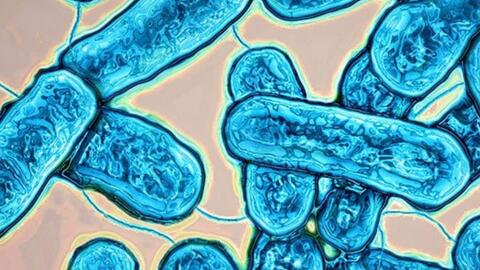The New Jersey Department of Health (NJDOH) has identified a cluster of Legionnaires’ disease cases in Union County, New Jersey.
Officials say as of May 23, NJDOH is aware of 22 confirmed cases of Legionnaires’ disease in individuals who reside in or visited Union County.
The people became ill between March 8 through May 13, 2019. Five deaths have been reported among older adults who had other significant medical conditions.
NJDOH is currently working with the U.S. Centers for Disease Control and Prevention and local health departments in Union County to investigate this cluster.
“This is a continuing investigation. The risk to any resident of, or recent visitor to Union County is very small,” said New Jersey Health Commissioner Dr. Shereef Elnahal. “Out of an abundance of caution, the Department recommends that individuals who live in Union County who become ill with pneumonia-like/respiratory symptoms, such as fever, chills, cough, shortness of breath, muscle aches, and headache visit their healthcare provider.”
Legionnaires’ disease is a type of pneumonia (lung infection) caused by bacteria called Legionella. People can get Legionnaires’ disease by breathing in aerosolized (small droplets) water containing Legionella bacteria. Aerosolized water can come from cooling towers (air-conditioning units for large buildings), cooling misters, decorative fountains, and plumbing systems. Legionella bacteria can be found in water systems of any type, but people cannot get ill with Legionnaires’ disease by drinking water. Home A/C units do not use water to cool, so these home units do not aerosolize water and are not a risk for Legionella growth.
“Legionnaires’ disease is not spread person to person and you cannot get it by drinking water,” added Dr. Elnahal.
The Department is conducting epidemiologic and environmental investigations to identify possible sources of exposures to bacteria, conducting environmental sampling for Legionella and recommending environmental remediation strategies to prevent further transmission of Legionnaires’ disease. The ongoing investigation has identified some potential sources and remediation has begun. It is also possible that other sources may surface in this ongoing investigation. Investigations into these types of Legionnaires’ clusters are complex. It is often not possible to determine the origin of the bacteria that infected people.
Most people exposed to Legionella do not develop Legionnaires’ disease. People over the age of 50, smokers, or those with certain medical conditions, including weakened immune systems, chronic lung disease or other chronic health conditions, are at increased risk for Legionnaires’ disease.
As it can take up to two weeks for symptoms to develop, NJDOH recommends that those who develop these same symptoms within two weeks of visiting Union County also seek medical attention. NJDOH has alerted healthcare providers in the area. Legionnaires’ disease is treatable with antibiotics.
Every year, there are between 250-350 cases of Legionnaires’ disease cases in the state.
